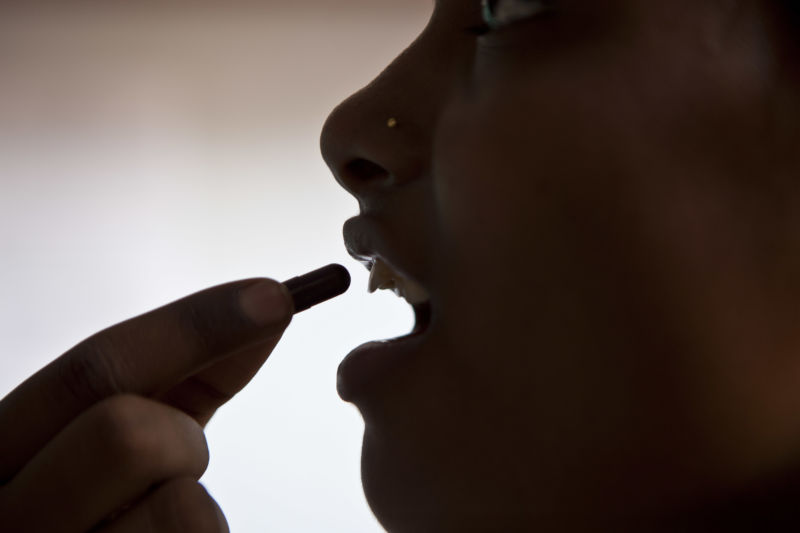Insane drug cocktails in India net drug makers millions and pose global threat
The drugs are made by international companies, but they’re not approved anywhere.
BETH MOLE - 2/6/2018, 8:10 AM

Enlarge
119
In August of 2016, doctors in Washoe County, Nevada, found that one of their patients couldn’t shake a bad bacterial infection. The infection had likely taken hold years before while the local woman was on an extended visit to India. There, she had undergone multiple hospitalizations and surgery for a leg injury and developed a bone infection. By the time she got back to Nevada, the infection had spread.The US doctors isolated her in a hospital room and threw all the antibiotics they could at the infection. It resisted all of them—26 in total, tests confirmed. In early September, the woman developed septic shock and died.
Though rare, the case highlights two important points: that drug-resistant bacteria don’t stop at borders and that India is of particular concern in the fight against antibiotic-resistant infections. While cases of drug-resistant bacterial infections are rising globally, recent data shows that India has among the highest rates of such infections in the world. The country is also the largest consumer of antibiotics per capita.
Now, new data paints a clearer picture as to why the country appears to be a breeding ground for drug resistant infections that threaten to spread within and beyond the country.
Drug companies—some international and even US-based—are selling millions of dubious and unapproved cocktails of antibiotics in India, all of which could spur the development of drug-resistant bacteria and imperil patients. The finding, published Monday in the British Journal of Clinical Pharmacology by UK health experts, suggests that the country poses a risk to global health and undermines efforts to control drug resistance.
The study authors, led by Patricia McGettigan of Queen Mary University of London, recommend firm regulatory action within India to ban these unapproved drug cocktails. They also call for the multinational drug companies producing some of the antibiotic mixtures—such as Abbott, GlaxoSmithKline, Astra Zeneca, Pfizer, and Merck/MSD—to be accountable for their products.
Drug companies “should be required to justify the sale of products in India that do not have the approval of their own national regulators and, in multiple cases, not even the approval of the Indian regulator,” they conclude.
Dodgy doses
For the study, Prof. McGettigan and her colleagues pulled antibiotic sales figures from a commercial database of Indian drug distribution called PharmaTrac. They looked at sales between October 2007 and November 2012. They then compared the inventory of drugs sold in India to the list of drugs approved by India’s Central Drugs Standard Control Organization (CDSCO) as well as those approved by the US Food and Drug Administration (FDA) and the European Medical Agency (EMA).
The researchers found that drug companies sold 86 regular, so-called “single-dose antibiotics” and 118 “fixed-dose combination” antibiotics over the five-year period. The FDC drugs are formulations composed of two or more drugs at fixed ratios in a single dose. They can include two or more antibiotics or antibiotics and a different type of drug, such as an anti-protozoal drug. Such combo formulations are rare in the US and UK; drug companies sold just five of these in the US and UK during the same period.
Many of the 118 sold in India were “poorly considered,” the authors note. Some combined antibiotics that needed to be taken at different intervals to work. For instance, one FDC paired an antibiotic that needs to be taken once a day with another that needs to be taken every eight hours to work effectively. Some combinations risked amplified side effects while others combined drugs that wouldn’t be given to treat the same illness.
Of the 118 types of FDCs, 75 (64 percent) had no approval from either the CDSCO, FDA, or EMA. Nearly all of the single-dose antibiotics were approved, on the other hand. Still, FDCs overall made up 34 percent of antibiotics sold in India by 2012—roughly 872 million doses that year. And 42 percent of the FDCs sold contained antibiotics that the World Health Organization considered “highest-priority critically important” drugs, which should be used sparingly.
Twelve multinational companies were responsible for making 53 of the 118 types of FDCs. These included Abbott, Astra Zeneca, Baxter, Bayer, Eli Lilly, GlaxoSmithKline (GSK), Merck/MSD, Novartis, Pfizer, Sanofi-Aventis, and Wyeth. Of the 53 FDCs, only four were approved by the FDA and/or the EMA, and 20 were not approved by even India's CDSCO. US-based Abbott, which has been criticized for its antibiotic sales in India before, sold 18 of those 20 unapproved combination drugs. In 2014, Abbott made $367 million from FDC profits in India, Reuters reported in 2015. At the time, a company spokesperson said that its manufacturing and marketing in India is "aligned with local regulations.”
The authors noted that the Indian government has made attempts to ban the unapproved drugs. But the efforts have been held up in courts, and drug regulation is weak, generally.
“The use of unapproved, scrutinized antibiotic FDC formulations is likely to contribute to India’s rising antimicrobial resistance,” the authors conclude. “Until definitive action is taken to ban most systemic antibiotic FDCs from manufacture and sale, [antimicrobial resistance] initiatives in India are likely to be undermined and the global action plan impeded.”
British Journal of Clinical Pharmacology, 2018. DOI: 10.1111/bcp.13503 (About DOIs).


 Damn bro...
Damn bro...

 these indians kiss up to these rednecks while treating the blacks like shyt....
these indians kiss up to these rednecks while treating the blacks like shyt....